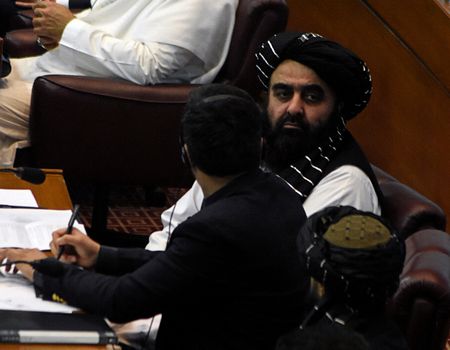
Had Pakistan cooperated meaningfully, situation in Afghanistan could have been different: US diplomat

Islamabad/Washington, Feb 17 (PTI). Had Pakistan cooperated with the US in a more meaningful and consistent way on a negotiated settlement on ending the conflict in Afghanistan, “we would be in a different place today,” America’s top envoy on Afghanistan Thomas West has said.
West was appointed the US special representative for Afghanistan in October 2021, and tasked with advancing US objectives in Afghanistan following the withdrawal of American and NATO forces and the Taliban takeover. Speaking at a discussion on the US and its consultations with the Taliban on Tuesday at the US Institute of Peace in Washington, West, who is also the Deputy Assistant Secretary at the Bureau of South and Central Asian Affairs of the State Department, spoke about US-Pakistan relations, differences between Islamabad and Kabul’s new rulers and the Taliban’s position on the Pakistan Taliban and the Durand Line.
During the life of the negotiations, from January to August, and in the years before, we were in very close touch with the leadership of Pakistan regarding steps that we urged Pakistan to take to enhance the prospects of a negotiated settlement to this conflict, West said. “Had Pakistan taken some of those steps in a more meaningful and consistent way, I think we would be in a different place today. I genuinely do,” he said. West acknowledged Pakistan’s role in arranging the peace deal with the Taliban in May 2020. “I think we don’t have a choice but to work with Pakistan on the way ahead (in Afghanistan),” he said, indicating Pakistan supported the peace process but did not accept all US proposals.
West added that Islamabad’s reluctance often irked Washington, although the two countries continue to support the Doha talks that led to an agreement in 2020. “Now, it’s a mark of our pragmatism, in my view, that in Washington you are not hearing leaders from across the spectrum spending time and energy criticising Pakistan and looking backwards,” he said. West, however, made clear that despite reservations Washington wants to continue its cooperation with Pakistan on Afghanistan and other issues. “I frankly think that that energy (criticising Pakistan) is not called for given the situation in Afghanistan today,” he said.
Islamabad’s reluctance, according to West, has added to the difficulties that Pakistan now faces in Afghanistan. “I think when it comes to Pakistan’s interests in Afghanistan today, they face challenges. They face real challenges of capacity,” he said. Afghanistan has been under Taliban rule since August 15 last year when the Afghan hardline militant group ousted the elected government of president Ashraf Ghani and forced him to flee the country and take refuge in the UAE.

















POST COMMENTS (1)
Niranjan